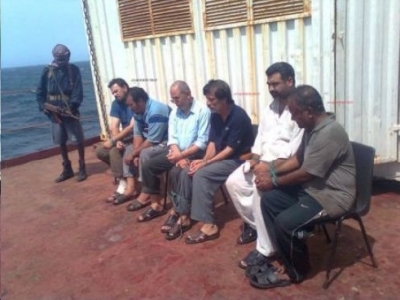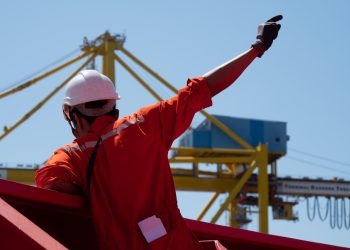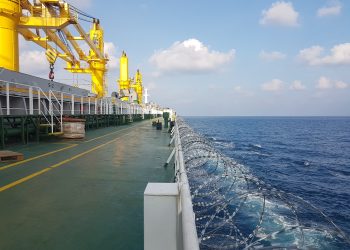Maritime Piracy Humanitarian Response Program
A programme to help seafarers and families cope with the physical and mental trauma caused by torture and abuse at the hands of pirates launches today in London, England.
Pirates are routinely using extreme brutality and the threat of death against seafarers and their relatives. The new Maritime Piracy Humanitarian Response Programme (MPHRP) is intended to help those seafarers and their families cope with the resulting pain and anguish.
Funded by the ITF (International Transport Workers’ Federation) Seafarers’ Trust charity and The TK Foundation, and chaired by Peter Swift, formerly MD of industry body INTERTANKO, the new programme speaks for an alliance of shipowners, trade unions, managers, manning agents, insurers and welfare associations representing the entire shipping industry, from crews to owners.
Its mission is to aid seafarers who have been or may be subject to pirate attack. Somali-based pirates now regularly treat hostage seafarers with extreme violence in order to put pressure on their families and/or employers to expedite their ransom demands. This includes phoning family members and making the seafarer plead for his life while he is abused and threatened with death, and filming this and posting it online for relatives to see.
Peter Swift, MPHRP chair, explained: “Piracy is reaching an all-time high: in the number of incidents, in the vast ransoms demanded and, most of all, in the extreme violence used. The treatment meted out to the victims now frequently crosses the line from savagery into torture.”
“The effects are potentially horrendous,” he continued. “For those, say, who successfully resisted capture but were nearly burnt alive in the room in which they barricaded themselves; for the brutalised hostages; and for those who daily put to sea in fear that it may at any time happen to them. And that’s not to forget the families, who are now firmly on the pirates’ target list.”
Roy Paul, of the ITF Seafarers’ Trust, and MPHRP programme manager, added: “Until now, there has been little coordinated help for those who are suffering. Now that will change. With the help of those in the industry who want to do their best for those involved, we intend to build up a network of first responders and get psychosocial help for affected crews.”
He concluded: “We have already been listening to seafarers and recording their experiences. Those will lay the foundation for new guides for seafarers, families and employers, for training in their use, and for building the networks of human and medical help that are now desperately needed.”
Peter Swift and Roy Paul will be speaking at the event alongside Dr Marion Gibson, psychosocial consultant to the MPHRP (their speeches appear in full below, along with testimonies of those affected by piracy). Other guests include: Second Engineer Chirag Bahri, who was held hostage by pirates for eight months and was subjected to torture; Bishop Kalathiparambil, secretary of the Pontifical Council for the Pastoral Care of Migrants and Itinerant People; Rear Admiral Ort, chief of staff of NATO’s HQ in Northwood; Capt Andy Winbow, assistant secretary general, IMO; leaders of international shipping organisations and other programme partners*.

The MPHRP partner organisations** are: BIMCO, ICMA, ICSW, IFSMA, IGP&I, IMB, IMEC, IMHA, Intercargo, InterManager, INTERTANKO, IPTA, ISAN, ISF, ITF, IUMI, OCI and SIGTTO.
The MPHRP observers are the International Maritime Organization (IMO), the International Labour Organization (ILO) and the NATO Shipping Centre.
The MPHRP funders are the ITF Seafarers’ Trust and The TK Foundation.
Source: ITF
































































